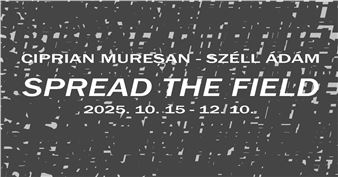Horizons of the Autonomy
Rivers, lakes, swampy lands and inanimate objects of nature have become accepted in law as "environmental personalities" for new opportunities for environmental protection in recent years in New Zealand, India and Europe. The rights of nature itself were recognized by a Pennsylvania settlement earlier, in 2006, the same appeared soon in Ecuador's constitution, and then Bolivia declared that nature had the right to both respect and regeneration. Their autonomous existence and right to protection became recognized so. In parallel with this change in jurisprudence, however, new ecological perspectives have emerged, according to which cooperation is dominant in the relationship between human beings and non-human beings, rejecting not only the central role of man, but also views that consider man to be autonomous and independent. David Abram thought of a "more-than-human" world in this way and then the rejection of human superiority and the idea of the autonomy of the planet, and even the objects of the universe, appeared in the theories of object-oriented-ontology.
The possibilities of autonomy (i.e. self-determination, one's own laws, freedom, among others) are, as can be seen from all this, constantly changing. But not only in planetary dimensions: the most sensitive social and individual conflicts of the present become apparent and understandable by articulating this and expressing their absence. With the help of this concept, which may seem difficult to grasp in philosophical texts, both one of our most basic psychic needs, our dynamics arising from our social connections and our points of connection with the state - perhaps invisible - can be visualized, as well as great political horizons are drawn.

Recommended for you
Rivers, lakes, swampy lands and inanimate objects of nature have become accepted in law as "environmental personalities" for new opportunities for environmental protection in recent years in New Zealand, India and Europe. The rights of nature itself were recognized by a Pennsylvania settlement earlier, in 2006, the same appeared soon in Ecuador's constitution, and then Bolivia declared that nature had the right to both respect and regeneration. Their autonomous existence and right to protection became recognized so. In parallel with this change in jurisprudence, however, new ecological perspectives have emerged, according to which cooperation is dominant in the relationship between human beings and non-human beings, rejecting not only the central role of man, but also views that consider man to be autonomous and independent. David Abram thought of a "more-than-human" world in this way and then the rejection of human superiority and the idea of the autonomy of the planet, and even the objects of the universe, appeared in the theories of object-oriented-ontology.
The possibilities of autonomy (i.e. self-determination, one's own laws, freedom, among others) are, as can be seen from all this, constantly changing. But not only in planetary dimensions: the most sensitive social and individual conflicts of the present become apparent and understandable by articulating this and expressing their absence. With the help of this concept, which may seem difficult to grasp in philosophical texts, both one of our most basic psychic needs, our dynamics arising from our social connections and our points of connection with the state - perhaps invisible - can be visualized, as well as great political horizons are drawn.

 ARTISTS
ARTISTS
















